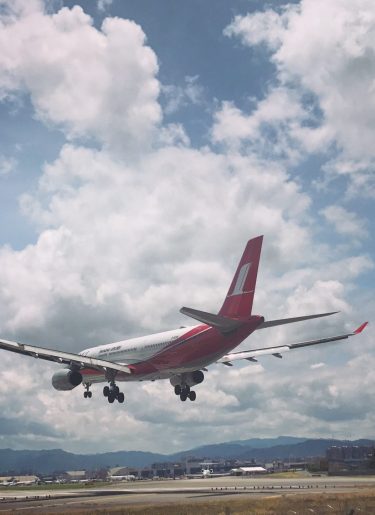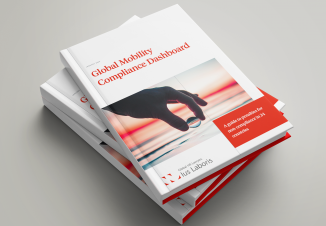
1. GUIDANCE
1.1 Has any guidance been issued on how UK nationals can obtain settled residence status and permission to work from 1 January 2021 and what proof of residence is needed for current residents to maintain their status?
Yes
UK citizens (and their family members) living and working in Belgium or UK citizens working in Belgium as frontier workers (within the framework of free movement of employees) before 31 December 2020 can continue to do so after 31 December 2020. They will have ‘Beneficiaries of the Withdrawal Agreement’ status. They will need to apply for new residence permits and exchange their current EU documents (E(+)-card or F(+)-card if they live in Belgium and Annex 15 if they are a frontier worker) by 31 December 2021 for a M-card (if they live in Belgium) or a N-card (frontier workers). Their current European documents will in any event cease to be valid from 31 March 2022. The application must be made at their commune and they must submit:
UK citizens living in Belgium have been or will be informed individually of the procedure for applying for their new residence card as ‘Beneficiaries of the Withdrawal Agreement’.
UK citizens who did not reside in Belgium or work as a frontier worker in Belgium by 31 December 2020 are considered as third-country nationals and require authorisation to work and reside unless an exemption applies.
However, the following family members are able to join UK citizens after 31 December 2020 and will be able to live and work in Belgium provided that the relationship already existed before 31 December 2020:
Those family members will need to apply for residence as ‘Beneficiaries of the Withdrawal Agreement’ within three months after their arrival or 31 December 2021.
2. BUSINESS TRAVEL
2.1 Do UK employees need a business visa from 1 January 2021?
No.
Regulation (EU) 2019/592 of 10 April 2019 exempts UK citizens from the requirement for a Schengen visa. It applies from the day the UK is no longer subject to EU law, i.e. 1 January 2021. UK citizens can enter and stay in the Schengen area for a maximum of 90 days in any rolling 180-day period.
2.2 What documents are needed on arrival for business travel from 1 January 2021?
A travel document (valid passport) with a validity of no more than ten years and that is valid for at least three months after departure from Belgium.
Proof of duration, purpose and conditions (i.e. accommodation) of stay as border control may ask additional questions concerning duration, purpose and conditions of stay. As of the end of 2022, UK nationals may have to apply for travel authorisation through the ETIAS system (European Travel Information and Authorisation System) prior to their trip.
Unless they stay in a hotel or guest house, UK business travellers will need to notify the appropriate communal administration of their presence within three working days from arrival and receive an Annex 3 form.
2.3 Do UK nationals need additional permission to work for business travel from 1 January 2021?
Even if allowed to enter and stay visa-free as third-country nationals for a maximum of 90 days in any rolling 180-day period, UK citizens might nonetheless need a work permit B after 31 December 2020. In principle, third-country business visitors are only exempt from a work permit B for meetings ‘in closed circle’ for a maximum of 20 subsequent calendar days per meeting and 60 days in total per year. Examples of meetings in ‘closed circle’ include negotiations with customers, evaluations with staff and company strategy meetings.
However, the Trade and Corporation Agreement provides for an exemption for a work permit B for ‘short-term business visitors’ to the extent that they do not sell goods or provide services. The permitted activities are listed in the Agreement (but reservations have been made for some countries) and are limited to 11 activities (e.g. meetings and consultations). The Agreement further foresees a permissible length of stay for those activities for a period of up to 90 days in any six-month period. It is not yet clear whether this means that the 20d/60d limit for meetings in closed circle without work permit B no longer applies for British nationals and confirmation has been asked from the Authorities.
Other exemptions exist such as for qualified and specialised employees and specialised technicians but subject to conditions and time restrictions.
3. EMPLOYMENT AND RESIDENCE
3.1 Do UK nationals need permission to work and stay in Belgium from 1 January 2021?
Yes, unless they can rely on an exemption such as:
The employer will need to apply for a work permit B for UK nationals working in Belgium for up to 90 days and a Single Permit for UK nationals to reside and work in Belgium for more than 90 days. The Single Permit is obtained via a single application procedure encompassing both permission to work and to reside in Belgium for more than 90 days as a salaried employee.
UK nationals coming to stay and work in Belgium in a self-employed capacity will require a residence permit and a professional card.
3.2 If permission to work is needed after 1 January 2021, do any quotas apply to the employment of third-country nationals?
No.
3.3 If permission to work is needed from 1 January 2021, what categories of permission are commonly granted?
For employees in Brussels:
For employees in Flanders:
The Flemish Region applies an economic migration model based on three separate profiles:
For employees in Wallonia:
The Walloon Region also applies an economic migration model based on three separate profiles:
3.4 If permission to work or stay is needed from 1 January 2021, how long does the procedure take?
Permission to work and stay in Belgium for less than 90 days:
Permission to work and stay in Belgium for more than 90 days:
3.5 If permission to work and stay is needed from 1 January 2021, what Government fees are payable?
Work permit B: EUR 25 to 50 (administrative fee depends on the commune)
Single Permit: EUR 363 (current amount as of June 2020)
4. FRONTIER WORKERS
4.1 What formalities apply to UK frontier workers working in Belgium but living in another country from 1 January 2021?
UK frontier workers working in the service of a Belgian employer are able to continue to do so afterwards as ‘Beneficiary of the Withdrawal agreement’. They need to apply for this status and exchange their current Annex15 for a N-card by 31 December 2021 at the latest.
UK frontier workers coming to Belgium after 31 December 2021 need a work permit B to work in the country even if they work for more than 90 days in Belgium. The employer will need to apply for a work permit B from the relevant region. In addition, the UK frontier worker will need an Annex 15 (non-EU) from the commune of his or her place of employment in Belgium to cover the period of stay.
5. PERMANENT RESIDENCE
5.1 From what date are third-country nationals entitled to apply for permanent residence?
After five years of legal and uninterrupted stay in Belgium (subject to conditions).
6. SECURING RESIDENCE AND WORK STATUS
6.1 What steps could UK nationals take currently to secure their residence and work status?


